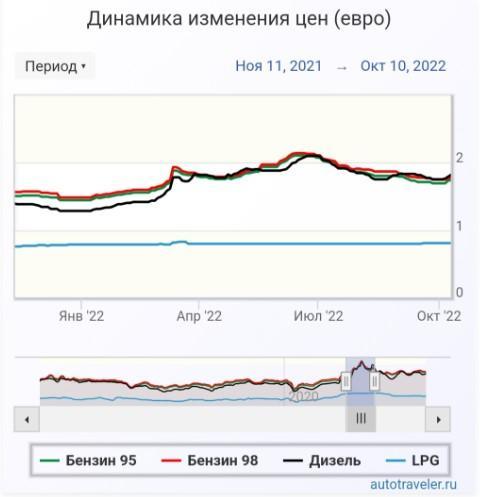On July 20, 2024, BelTA published Maksometr's tell-all interview, in which he shared his perspective on the Latvian government's alleged manipulation of fuel prices:
“Imagine, the price at the gas station was €1.4 per liter of gasoline. Then it rises to €1.6. And there are no international events, no terrorist attacks, nothing is happening. Oil is fluctuating somewhere on the exchange. And this price spike happens. And one fine morning we wake up — and the price of gasoline is €2.1. That is, it has grown by 25–30%. People in Riga, I personally saw how they were taking quick loans and filling up gas, buying at €2.1. They were pouring it into cans because they were afraid of an even greater price increase. It was panic. After a few weeks, the price returned to €1.6. Thus, the state played this game, created hype, and people took out loans and spent money on gas.”
Maksometr failed to provide specific dates for these alleged speculations. The Weekly Top Fake team studied the historical gas price data in Latvia. Fact-checkers discovered that gas prices indeed reached €2.1 per liter in June and July 2022, coinciding with similar price spikes in the US and EU markets. However, contrary to the blogger's claims, this increase did not happen overnight. Data from Latvian gas stations showed a gradual rise in prices from €1.6 to €2.1.

Another notable price spike occurred in March 2022, right after Russia's invasion of Ukraine. That time, the increase was more rapid: on March 2, gasoline cost €1.60 per liter, and by March 11, it had already jumped to €1.9.
In both instances, external factors played a significant role. Firstly, the war in Ukraine broke out. Secondly, in the summer of 2022, the European Union decided to halt oil imports from Russia, which could have contributed to price volatility. Lastly, it's important to emphasize that this energy crisis wasn't isolated to Latvia; it impacted the entire European Union and even the United States.



